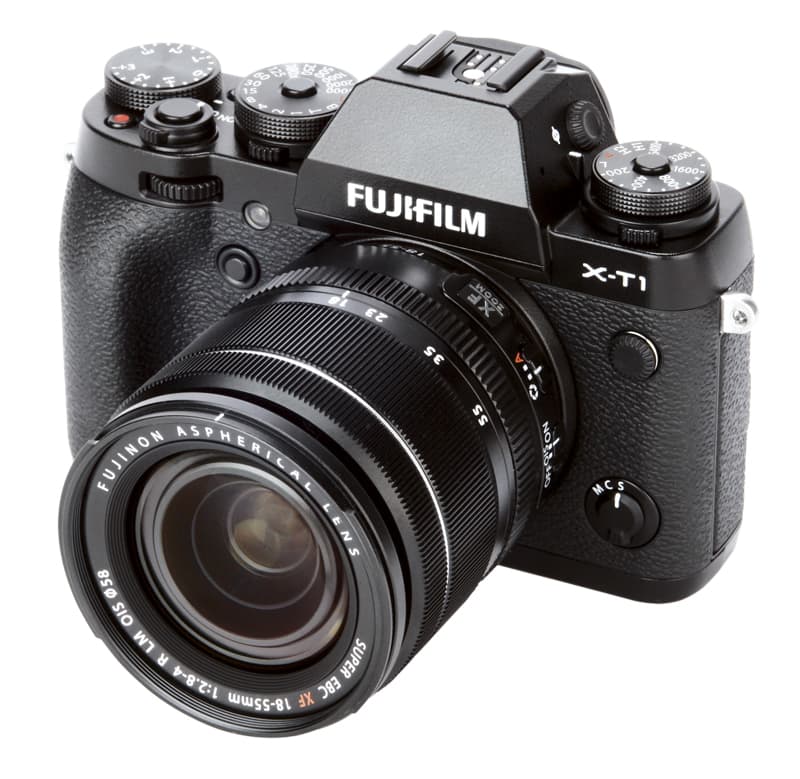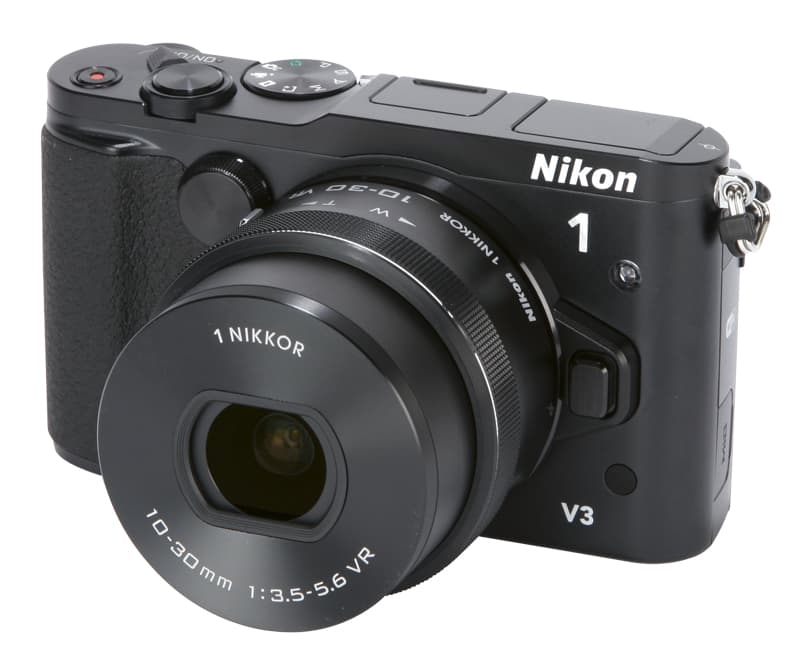Asked why Nikon has not introduced a CSC with a large sensor, such as APS-C-size or full frame, Dirk Jesper, product manager at Nikon Europe’s professional products planning division, said: ‘You shouldn’t underestimate the Nikon 1 system…
‘OK, it’s a 1in sensor and not full frame, or APS-C-size.
‘On the other hand it gives us advantages over other systems because, looking at systems that have this size of sensor, sorry to say, they are no longer compact.’
Meanwhile, Jesper said Nikon has not been able to fulfil demand for the Nikon 1 V3 (pictured above) because the ‘response has been so great’.
In an interview with AP at Photokina, Jesper observed that some CSCs are moving closer in size to DSLRs, citing as examples the Fuji X-T1 (below) and Sony Alpha 7 models.
‘We have, and always will, bring new technologies to the market, but not at all costs…’

Jesper accepted that there has been growth in the CSC market but added: ‘The market is growing moderately, but that’s on a very small scale [in relation] to the size of the [overall] market.
‘In terms of total value and units, it is really small compared to what DSLR is still doing.’
Last month, Nikon revealed that it had suffered a 31% drop in global sales of interchangeable-lens digital cameras in the three months to 30 June.
‘The whole market has contracted since last year,’ said Jesper who explained that it is not simply a case of people now deciding to buy a CSC instead of a DSLR.
‘Mirrorless is not growing by the same amount.’
Nikon has faced questions about whether it will make a mirrorless camera for professional photographers.
Will Nikon, realistically, ever launch a professional-level mirrorless camera when so many of its users have invested in expensive lens and accessory systems over many years?
Jesper stressed that Nikon has already shown that DSLRs are not the ‘Holy Grail’, by launching the Nikon 1.
Though he could not predict whether DSLRs will be around forever, he claims they offer advantages over CSCs, in terms of AF speed, tracking and ‘reliability of the life cycle’.
And a high-end mirrorless system would need to win acceptance from professionals and many loyal enthusiasts – as well as offering the same ‘ecosystem’ as DSLR.
‘We race Formula 1. There are no second places here.
‘Yes, it [a professional mirrorless camera] might happen one day, but we cannot offer a “second best” solution for professionals…’








